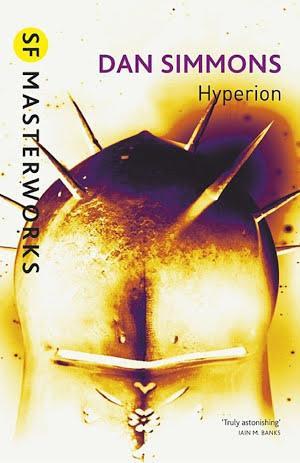addie reviewed Hyperion by Dan Simmons (Hyperion Cantos, #1)
Review of 'Hyperion' on 'Goodreads'
4 stars
TL;DR removing one star because it falls into some classic uncritical usage of colonialist + imperialist narrative, misogynist plot devices + characters, and ableist language + lenses. without downplaying these core issues, i still have to say this book (and its sequel) are some of the most impressive, ambitious, & compelling hard sci-fi i've ever read. more specifics:
in particular "the soldier's tale" and "the consul's tale" were both totally uncritical of their feminine muse characters-as-plot-devices, and the sex scenes felt shoehorned and pointless because of it. "the detective's tale" starts by centering a dope & hyper-competent woman character but she too is eventually shrunk into a confused & lovesick wench. the book in general also has a poorly-hidden enjoyment of militarism & military aesthetics without much of a critical eye, although I think the sequel does more in this regard. "the priest's tale" could have done without its offensive …
TL;DR removing one star because it falls into some classic uncritical usage of colonialist + imperialist narrative, misogynist plot devices + characters, and ableist language + lenses. without downplaying these core issues, i still have to say this book (and its sequel) are some of the most impressive, ambitious, & compelling hard sci-fi i've ever read. more specifics:
in particular "the soldier's tale" and "the consul's tale" were both totally uncritical of their feminine muse characters-as-plot-devices, and the sex scenes felt shoehorned and pointless because of it. "the detective's tale" starts by centering a dope & hyper-competent woman character but she too is eventually shrunk into a confused & lovesick wench. the book in general also has a poorly-hidden enjoyment of militarism & military aesthetics without much of a critical eye, although I think the sequel does more in this regard. "the priest's tale" could have done without its offensive takes on neurodivergence and the frontiersman/missionary narrative too.
thankfully Simmons does engage much more critically with imperialism, sex/gender, and disability as the book+series progresses. "the scholar's tale" in particular was beautiful and devastating, and I enjoyed "the poet's tale" for its view on socioeconomics + disability and life in an over-networked world. speaking of, the world of the book is massive and intricate with a rich history that is revealed in media res as you read (my favorite type of worldbuilding though i know some find it tedious). if huge-scale speculative political & philosophical intrigue interwoven with intimate hyper-personal character-driven narrative is your cup of tea, give it a shot and hit me up to discuss!




